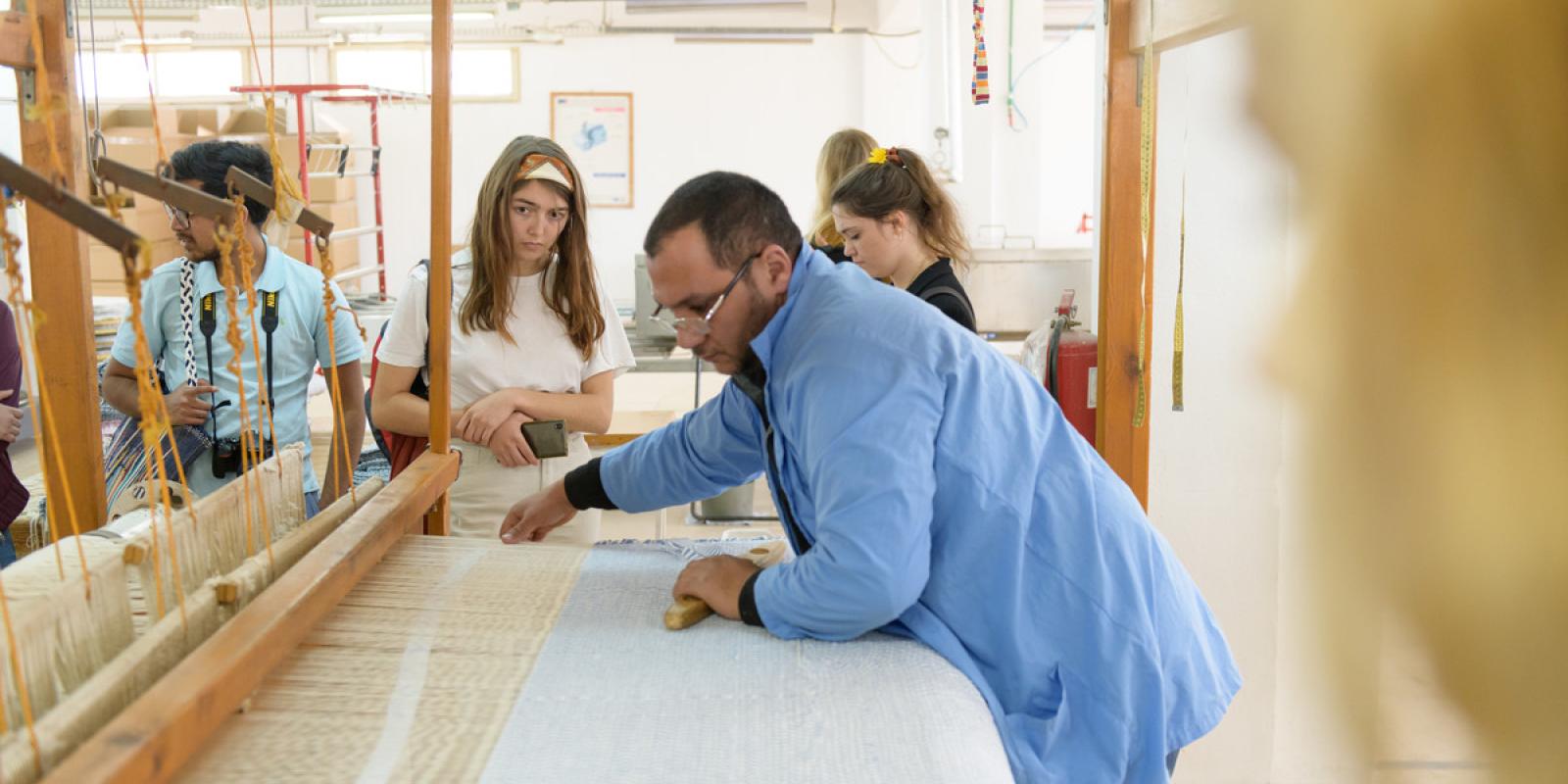
The Vocational Potential
We have faith that these programs will change our culture as Egyptians so that we don’t only look at university degree graduates, while technical caliber, regardless of their capabilities to perform well, are not regarded appropriately,” acknowledged President Abdel Fattah El-Sisi. These remarks were made in the 2019 World Youth Forum with Tarek Shawki, Minister of Education and Technical Education (METE), as well as the former AUC Dean of the School of Sciences and Engineering. The School of Continuing Education (SCE) also affirms the critical value of vocational education, but no one said that would be easy.
Approximately half of all Egyptian high school students are enrolled in a technical school, known as thanwaiya faniyah. These schools provide focused foundational instruction for technical, or commonly blue-collar careers such as industrial, agricultural, commercial or hospitality work. Historically and for various reasons, this technical education has been substandard. However, the mounting repercussions on Egyptian education, economy, and people have created widespread urgency and willingness to take technical action.
The vocational education curriculum is undergoing a total revamp as a part of METE’s progressive and robust educational reform, according to Deputy Education Minister for Technical Education Mohamed Megahed. Starting with secondary school, over 36 programs have been redesigned in collaboration with industry players to meet market needs as a competency-based learning module. The new programs were piloted this academic year in over 100 schools with a gradual roll-out planned to the country’s approximately 2500 vocational secondary schools.
From there is a myriad of existing and disruptive new avenues for public technical education and vocational training at the secondary and tertiary levels. For example, more than 25 ministries alone offer learning and training opportunities. Here comes in the role of new mitigation bodies; TVET Egypt to manage the traffic and ETQAAN to maintain quality control and accreditation, alongside a specialized teachers’ academy. METE itself is coming forward with mindset-shifting paradigms and labor force enhancing solutions, including its ‘applied technology’ universities and private sector partnership programs.
As AUC’s nexus point with the wider Egyptian society, SCE launched the Applied Vocational Studies track in commitment of its mission to provide lifelong learning opportunities for all. In its pilot offering, SCE launched several Electro-Mechanical, technical standalone courses and an Applied Supervisory Professional Diploma for individual mid-career learners and industry partners. The department is also being bolstered with a spot in the coveted U.S. Department of State scholarship, Study of the US Institutes for Global Scholars.
In recent fruitful collaborations, the Ministry of Military Production, as well as Egyptian home-appliances mogul, Fresh Industries (cue Ramadan catchy ad jingle يا إما فريش يا إما بلاش) enrolled their factory workers in SCE’s Operational Applied Quality course. They learned best-practice tools and techniques to analyze technical variables, inspections, sampling plans, and quality-cost concepts. Fresh Industries also signed up another team in the Operational Technical Drawings course where they developed their understanding and drawing skills, including computer-aided drawing (CAD) software.
The educational momentum stimulates indispensable value to the economy, and ultimately for us all in Egypt. Vision 2030 acknowledges human capital as the country’s main resource. With the labor force expected to increase to 80 million people by then (including a major youth bulge), a lack of an educational foundation for all jeopardizes the continued growth of the informal economy. Currently estimated to represent 40 percent of gross domestic product (GDP), the complex informal technical sector is typically characterized by its small size of freelance operations and low level of organization. The compounded impact of what is has been commonly described as the technical worker's ‘Egyptian touch’ is a catalyst for creative chaos.
Simply put, population increase has outgrown job creation as we know it, right here, right now. So while the government is promoting smaller families, there is an urgent effort to propel strategic, diverse, and continuous job
creation. It is important though to recognize where we are starting from. Egypt ranked 104th out of 119 countries in 2018 The Global Talent Competitiveness Index. The relevance of the country’s education system to the economy, skills matching with secondary education, and skills matching with tertiary education, ranked 117th, 118th, and 118th respectively.
The feat almost sounds insurmountable, but it isn’t. Stakeholders across ecosystems are actively engaged and demonstrating a commitment to the shared Vision. Mega-projects like the Administrative Capital and the plethora of new cities across the country with the associated infrastructure needs and diverse market opportunities can act as a metaphorical magic seed to the economic beanstalk. That is, of course, contingent upon also planting the education seed.
All this is ultimately about people. Diverse people that have the same human ambitions as everyone else, but share an experience of systematically inequitable opportunities. Their silver lining is their grossed grit. Overall, access provides the potential to pursue these human ambitions, including the right to decent work. This is not a ‘chicken or the egg’ scenario. Skills do not come without development. Even unskilled labor still requires some skills. There is a certain collective responsibility here. To refer to the final metaphor, the grand effect of the butterfly’s wings first requires the force it garners as it slides its wings against the momentum and then brings all that forward.
With the launch of the Applied Vocational Studies programs, SCE acknowledges its responsibility to Egyptian technical students and professionals. The value SCE offers has a uniquely impactful return with a greater significance to the learner, their employer, and the economy. We honor the man who recognized all this since his inauguration day pledging, “The process of upgrading the education sector should include also enhancing vocational education and associating it with the labor market needs,” President Abdel Fattah El-Sisi, and all those that contribute to collective will building the technical force.